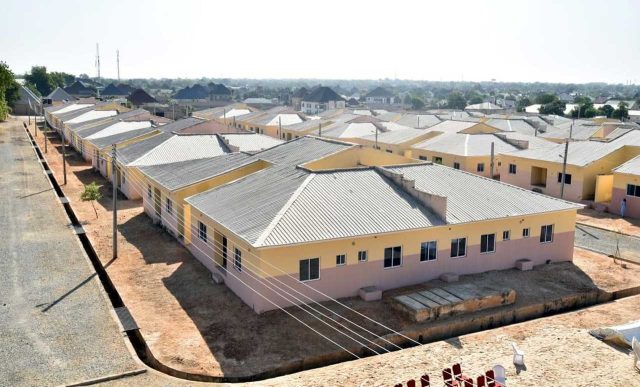In the face of Nigeria’s staggering 28 million housing deficit, real estate experts are highlighting the urgent need for a massive investment of over N21 trillion to address the housing crisis and cater to the needs of the burgeoning population.
Babajide Durojaiye, the Managing Director of Legrande Properties Development Company Limited, alongside the Company Secretary, Blessed Amiolemen, addressed the press in Lagos, shedding light on the progress at their Alexandra Courts Coastal City project in Ibeju, Lekki, Lagos.
Amiolemen pointed out that with the annual average rate of N7.47 trillion in credits to the real estate sector, it would take approximately three years to meet the demand for 28 million housing units. However, this estimation assumes a stagnant population figure, which is unlikely as the population continues to grow, leading to an ever-increasing housing gap. The shortage of credit available to the real estate and construction sector has exacerbated the housing deficiency, causing it to double between 1991 and 2023, outpacing the population growth.
Durojaiye emphasized the importance of government and private sector collaboration to provide affordable housing units. He warned that without such cooperation, an alarming 80 per cent of the population would remain unable to access suitable housing. Currently, houses in Lagos are beyond the reach of many, while wealthy individuals dominate the sector, leading to a surplus of unoccupied homes.
The real estate expert urged the government to streamline access to land, offer financial support to developers, and ensure low-interest rates to facilitate housing projects. Additionally, he stressed that subscribers should view National Housing Fund (NHF) loans as an opportunity for sustainable homeownership, rather than merely a national resource to be exploited.
In response to the pressing need, Legrande Properties Development Company Limited aims to bridge the housing gap by constructing 5,000 affordable housing units, while maintaining a commitment to quality structures that adhere to building codes. However, addressing the massive housing deficit requires broader cooperation and concerted efforts from both the public and private sectors.

































